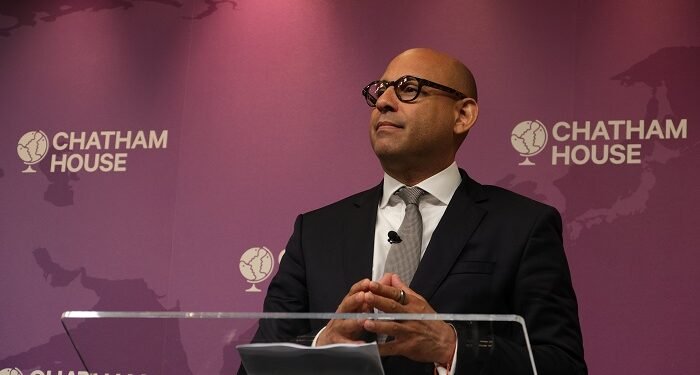– Advertisement –
The UN Climate Change (UNFCCC) Executive Secretary, Simon Stiell, will visit Nigeria for a four-day trip to discuss the opportunities a strong climate plan can bring with government officials, business leaders, civil society, and other key stakeholders.


The Executive Secretary will first visit Abuja, from March 4 to 5, 2025, where he’ll engage with Nigerian government officials and civil society.
After meeting with key government officials in Abuja, he will attend a symposium on the “Intersecting Worlds of Climate Change, Mangrove, and Art” on March 6, convened by Nigeria’s National Council on Climate Change Secretariat (NCCCS) at the Lekki Conservation Centre in Lagos.
The Executive Secretary will deliver a speech on the opportunities of Nigeria’s new climate plan (also known as their Nationally Determined Contribution or NDC), which will be open to media attending the event.
The speech will focus on how Nigeria can realise new economic opportunities with a new national climate plan, and why bold action on climate change can lift people out of poverty, and secure energy access for all.
The Executive Secretary will emphasise that key sectors in Nigeria’s economy are on the verge of take-off, and that bold climate plans are key to them taking flight, bringing significant benefits for households, businesses, and governments.
He will talk about how protecting the environment boosts Nigeria’s resilience to extreme weather caused by climate change, saving lives and livelihoods. From preserving mangrove forests that protect coastal areas from flooding to growing a Great Green Wall in the Sahel to restore degraded land, Nigeria has a clear path forward in adapting to the impacts of climate change on its people, crops, and infrastructure.
Additionally, the Executive Secretary will participate in a panel discussion with business leaders at the symposium on March 6 and meet with civil society representatives on March 7.
With 198 Parties, the UNFCCC (United Nations Framework Convention on Climate Change) has near universal membership and is the parent treaty of the 2015 Paris Climate Change Agreement.
The main aim of the Paris Agreement is to keep a global average temperature rise this century well below 2 degrees Celsius and to drive efforts to limit the temperature increase even further to 1.5 degrees Celsius above pre-industrial levels.
The UNFCCC is also the parent treaty of the 1997 Kyoto Protocol.
The ultimate objective of all agreements under the UNFCCC is to stabilise greenhouse gas concentrations in the atmosphere at a level that will prevent dangerous human interference with the climate system, in a time frame which allows ecosystems to adapt naturally and enables sustainable development.










